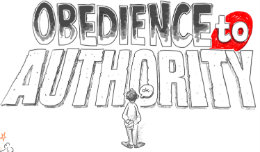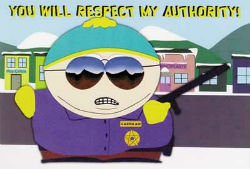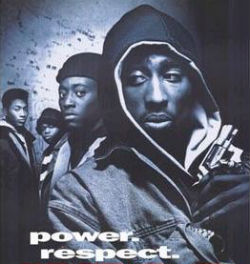This week the country has been faced with another incident in the great state of South Carolina involving a local law enforcement officer misusing his authority and mishandling a citizen. Among the many debates that have taken place on TV, on social media, and in living rooms across the country, one line of argument has been particularly troubling to me.
Some people watched the video footage of a high school student being slammed out of her desk and thrown across her classroom by an adult male law enforcement officer, and they have concluded that the main issue was that the young woman did not leave the classroom when she was asked/told to leave by her teacher and by the school’s administrator.
Their argument to this young girl is basically, “if you would have done as you were told, nothing bad would have happened to you.” This if-obedience-then-justice promise is a claim that has been tested in recent years by the social justice movements that have arisen in America, and for many communities across the nation it has proven to be an empty promise.
The tension between authority and respect lies at the center of the relationship between adults and youth in any society. Unfortunately, we only seem to talk about this important subject when an adult reacts to a perceived act of disrespect by a young person.
So in the spirit of never letting a teachable moment go to waste, here are a few ideas to consider as we talk about what happened in that South Carolina classroom.
1) Authority can be given, respect must be earned. Respect is a choice. Being obedient, submissive, and silent does not necessarily mean you respect the person in authority. Think of your own experience in school. Think of the coaches you’ve played for, the bosses you’ve worked for, the unhealthy relationships you may have been in.
2) When working with people passing through the glorious stage of teenage-dom, it is important to recognize when you may not be the right messenger to reach that young person. Particularly if that young person is struggling with emotional/psychological issues.
Part of the art and skill of teaching is learning who your students listen to, and building an alliance with that person so that you have multiple resources at your disposal when engaging (or disciplining) a student. That person could be the school aide, a secretary in the front office, the school’s custodian, the nurse, the cafeteria staff, the crossing guard, and yes, even the school security officer. In a healthy school community, there should be at least one adult who has a connection to each young person. If there isn’t, then maybe it’s the adults who have the problem.
3) There are two halves of the respect equation. In families, children are expected to respect their parents, and parents are expected to provide a loving, nurturing, and protective home for their children. At work, employees are expected to respect their bosses, and employers are expected to pay their employees and treat them in a dignified and non-exploitative manner.
In a school, students are expected to respect their teachers and principals, and the teachers and principals are expected to provide students with a quality education in an affirming and empowering academic environment. In a society, young people are expected to respect their elders, and the adults in that society are expected to protect the young and to make decisions that will improve the life conditions for future generations.
It is not a stretch to say that this current generation of young people has good reason to question whether the adults are keeping up our end of the social contract, which is what respect requires.
4) It is the role of the young to challenge, oppose, resist, doubt, and question the world around them. From an infant’s cries to a toddler’s incessant “Why?”, we begin interrogating and investigating the world the grown ups have created from our earliest days.
When we become teenagers and young adults, our interrogations become less cute and adorable, but do not become less important. My life would be impossible in this country without the relentless work of generations of young people who came before me who refused to be quiet and obedient when justice & equality demanded loud and forceful action.
We as adults must decide whether our response to young people who won’t listen to us is to throw them away (literally and figuratively)… or whether our response is to listen to them.
– Day G.
Host, Class of Hope & Change



